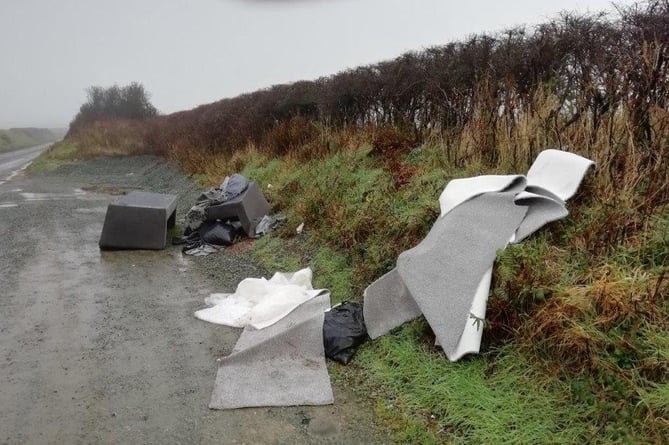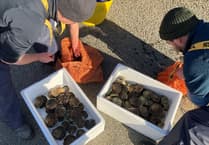Wales’ environment regulator is receiving increasing reports of illegal waste sites and taking more of them forward for enforcement action, figures have shown.
Natural Resources Wales (NRW) handled 504 reports of illegal waste sites in 2021, more than double the number of two years previously.
There were also more reports of waste being burned, more incidents relating to waste carriers and more suspected waste permit breaches in 2021 than the previous two years.
Some categories of waste incidents though, such as noise, fell in 2021.
The figures provided to the Local Democracy Reporting Service also explained what NRW did to try to ensure land blighted by illegal waste was cleaned up.
The information was provided in response to a request under the 2004 Environmental Information Regulation, which is similar to the Freedom of Information Act.
The 2021 figures include the following:
• Illegal waste site reports – 504
• Burning of waste – 550
Suspected permit breach – 120
• Waste carrier – 78
• Total number waste offences (in 14 categories) reported to NRW – 3,187.
The 2020 figures include the following:
• Illegal waste site reports – 404
• Burning of waste – 465
• Suspected permit breach – 84
• Waste carrier – 59
• Total number waste offences (in 14 categories) reported to NRW – 2,746.
The 2019 figures include the following:
• Illegal waste site reports – 214
• Burning of waste – 405
• Suspected permit breach – 92
• Waste carrier – 33
• Total number waste offences (in 14 categories) reported to NRW – 3,227.
NRW recommended 465 waste incidents for enforcement action in 2021, compared to 365 in 2020 and 373 in 2019.
Some of this enforcement action went on to involve court proceedings, and guilty outcomes were recorded in 42 cases last year, and 29 and 35 in the previous two years.
Other action included a warning or advice being issued and, in a few cases, a permit being revoked.
Asked what action it took to facilitate the cleaning up of waste-blighted land in cases which had involved a successful prosecution, NRW said the offender, landowner or occupier were the first port of call.
“NRW must be seen to hold those responsible for waste offences affecting land for the cost of remediation,” it said.
The regulator said it did not feel it was appropriate for public money to be used unless there were overriding reasons, such as an immediate and significant risk to people or the environment, or if it was clear that those responsible were unable to do the clearance work.
NRW added it would use legal powers to force clean-ups where voluntary action by those responsible was “considered to be unlikely”.




